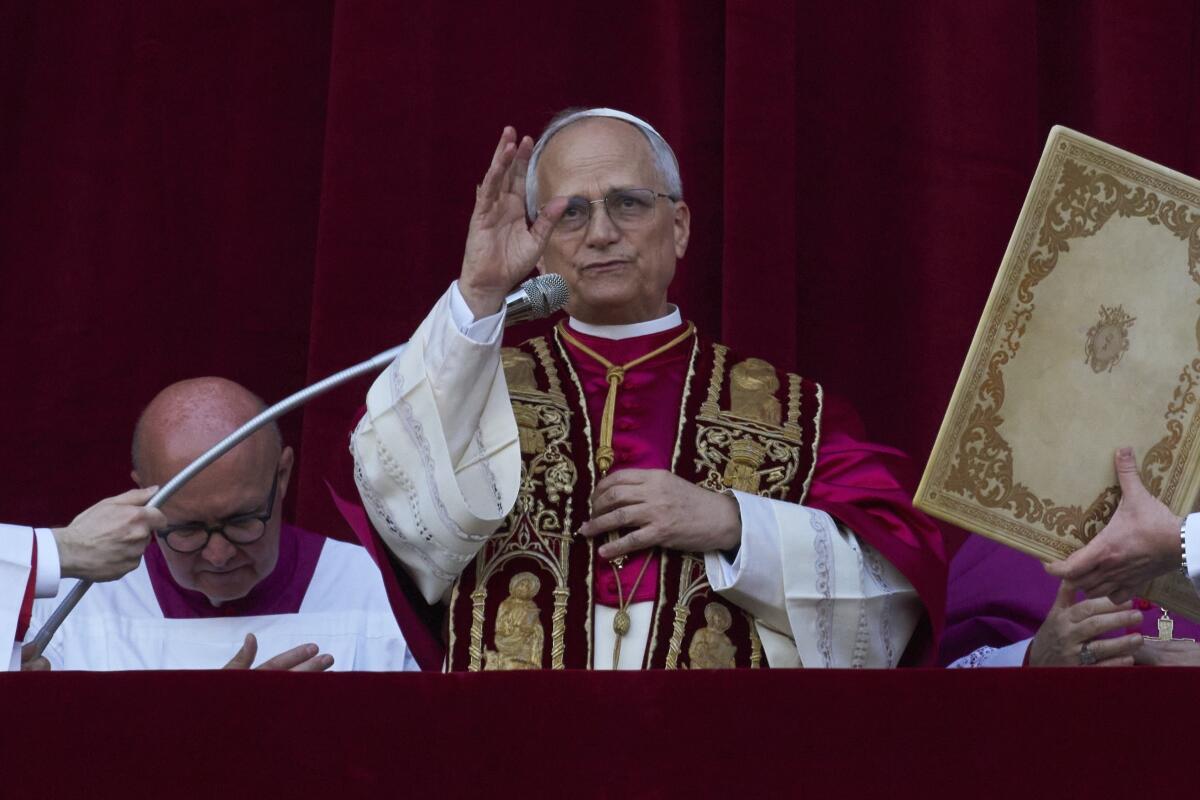
How the first American pope will interact with the president of his homeland remains to be seen, but a few posts on social media might provide a clue.
Cardinal Robert Prevost, now Pope Leo XIV, is also known on the social media site X as @drprevost, where he has occasionally weighed in with reposts on issues of faith and politics — including Trump administration comments or actions.
In February he shared articles that took issue with a comment by Vice President JD Vance, who converted to Catholicism as an adult and met on Easter Sunday with Pope Francis, who died the next day.
Vance’s visit came after the pope had written a letter to U.S. bishops in February, detailing his concerns over the Trump administration’s plans for mass deportations.
The pope underscored his support for “migrant and refugee brothers and sisters” in the letter: “Christians know very well that it is only by affirming the infinite dignity of all that our own identity as persons and as communities reaches its maturity. Christian love is not a concentric expansion of interests that little by little extend to other persons and groups.”
On Feb. 12, Prevost reposted an article from the Catholic publication America magazine saying the pope’s letter served as a rebuke of Vance’s comments in a Jan. 29 Fox News interview “that you love your family and then you love your neighbor, and then you love your community, and then you love your fellow citizens, and then after that, prioritize the rest of the world.”
Prevost reposted an article in a similar vein on Feb. 3 from the National Catholic Reporter headlined “JD Vance is wrong: Jesus doesn’t ask us to rank our love for others.”
Reposts on social media do not necessarily signal an endorsement of their viewpoints.
In April, the new pope reposted of a comment from writer Rocco Palmo, who questioned Trump and El Salvador President Nayib Bukele’s meeting in the Oval Office. The presidents met days after the U.S. wrongly deported a Salvadoran man residing in Maryland, Kilmar Abrego Garcia, and declined to bring him back, despite an order from the Supreme Court that the U.S. facilitate his return.
Palmo’s post quoted an article written by Washington, D.C., Auxiliary Bishop Evelio Menjivar: “Do you not see the suffering? Is your conscience not disturbed? How can you stay quiet?”
In 2018, when news of immigrant children being separated from their parents at the border reached a fever pitch during Trump’s first term, Prevost retweeted a post from the archbishop of Chicago that said: “There is nothing remotely Christian, American, or morally defensible about a policy that takes children away from their parents and warehouses them in cages. This is being carried out in our name and the shame is on us all.”
Trump on Thursday praised the news about Prevost. “Congratulations to Cardinal Robert Francis Prevost, who was just named Pope. It is such an honor to realize that he is the first American Pope,” the president wrote on X. “What excitement, and what a Great Honor for our Country. I look forward to meeting Pope Leo XIV. It will be a very meaningful moment!”
The liberal advocacy group Occupy Democrats, in a statement on X, suggested Trump’s praise would be fleeting: “Once [President] Trump gets a better sense of Pope Leo XIV’s beliefs — namely that Christians are called to love and care for all of the people of the world, not just white conservatives — the president will likely be singing a very different tune. If and when that attack comes, we will proudly stand with Pope Leo’s love and kindness against Trump’s hatred and cruelty.”
The announcement of Prevost as the first American to be named pope comes at a tense time for European-American relations, as the Trump administration is moving to isolate the United States and, in some cases, antagonize its traditional allies.
European nations are still navigating choppy economic waters after Trump issued sweeping tariffs last month against all countries. The papal decision Thursday coincided with the White House’s announcement of its first trade agreement struck with a European nation, the United Kingdom. Several other European nations are still waiting their turn to negotiate with Trump over lowering the tariffs.
While adjusting to rapid economic changes, European leaders are also still reeling from when Vance gave them a stern rebuke at the Munich security conference in February, when he warned against overregulation and advocated listening to all corners of the political spectrum — including Germany’s far-right party.
The papal announcement came days after the White House posted on its social media an AI-generated photo of Trump as pope.